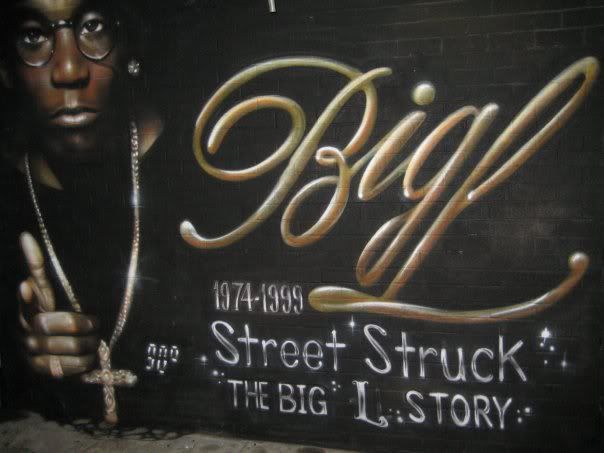On Hip-Hop & Consumerism
Public Enemy's Fear of a Black Planet. NWA's Straight Outta Compton. 2 Live Crew's As Nasty As They Wanna Be. Ice-T's Rhyme Pays. What do these albums have in common? Besides being four of the more iconic works in hip-hop because of their critical impact, they were all heavily chided by the mainstream media at the time, citing their profane language, overt sexual and violent references, and general disdain for anything pure and wholesome. One could argue that the impetus for these themes is of the 'product of their environment' school of thought. Regardless, these albums came out in the late 1980's, a period in which hip-hop was beginning to take hold not only on the charts, but in the mind's eye of American society.
One need look no further than the inception of the Parental Advisory sticker to see their impact. Tipper Gore's defense of family values (whatever that means) led to the now-ubiquitous brand placed on a hefty chunk of hip-hop music deemed too raunchy for most ears. Yet and still, hip-hop music continues to thrive. The four albums I listed above, while also critical successes, were respective chart-toppers. One couldn't go anywhere without hearing the praises of Ice-T or Ice Cube or Dr. Dre emblazoned in a negative light. Yet today, if one walks into a Wal-Mart, flips on Law and Order, or watches 'Are We There Yet', the same once-nefarious hoodlums are now peddling wares to the same (give or take) America that once cowered at the mere recitation of their lyrics.
Why is that? Has the world softened its view on hip-hop in the face of consumerism, or have these gangsters softened their images for the sake of staying relevant/making a profit? It used to be that if a rapper was placed in the same sentence as a consumer brand, that brand's stock would drop faster than a DJ Khaled record. Look at Tommy Hilfiger, which was once a staple of Americana and the boat shoe crowd. Many dubbed Snoop Dogg's donning of a Hilfiger Rugby on a 1994 Saturday Night Live episode as a cheapening of the brand, yet by 1995 Hilfiger was the Menswear Designer of the Year. Hip-hop was gaining the power to make things 'cool'. Look at products such as Clarks' Wallabees, Timberland Boots, Nike Air Force Ones, adidas Shelltoes, all of which were popularized by rappers. While the mainstream media may have taken longer to catch on, their buzz was a by-product of rappers simply wearing them or using them in songs.
These wouldn't have gone down 10-15 years ago:
Fast forward to this decade, and instead of hip-hop making products pop, products of hip-hop are popping. It's not clothing anymore, either. Gone are the days when MCs aspired to be fashion designers. Rappers are making forays into everything from liquor with Ludacris' Conjure to headphones with Beats by Dre; equestrian stables and Nike commercials with Rick Ross to corporate raiding with Diddy. Hip-hop, while still a form of music, is a business; an all-encompassing media giant capable of moving markets and making trends. Swizz Beatz for Reebok and Kanye West for Nike and Louis Vuitton have designed their own sneakers. Eminem is essentially the face of Chrysler, lending his wildly popular 'Lose Yourself' to the Detroit automaker. Jay-Z and Nelly are a part owner of basketball teams. Where in the 80s and 90s these happenings would be something out of the Twilight Zone, hip-hop's mainstream success has allowed for monetary power in the hands of its purveyors.
What does this mean for hip-hop, though? While it is great for exposure and letting Middle America know that rappers are indeed human and capable of selling more than their music, is it cheapening the cult of hip-hop? My answer is no. Hip-hop has always been steeped in consumerism, and even moreso in the American Dream. To quote the immortal Big L "to be seen clean in the mean Beem (BMW) is every teen's dream". Almost every rapper has made a song about overcoming rampant poverty and lack of funds to be able to afford a lavish and expensive lifestyle. Yes, they want to tell their story and reach the masses with their unique perspectives, but money is always a motivation. Maybe they sell themselves short to get to that ends more quickly, but the goal is not and was never to be a starving artist forever (as much as Charles Hamilton's crackpipe says differently).
Consumerism, while vilified because everyone hates Christmas shopping and greed, is as American as hip-hop is. And hip-hop, while once the nightmare of America, has proven its staying and selling power. Who knows what kind of commercials, endorsements and product lines we could be seeing in the next decade of hip-hop. Silicon Valley? Clean energy? Hell, the same Uncle Luke that was arrested for lewdness on numerous occasions is now running for public office in Miami-Dade County. It's amazing how hip-hop can expand across numerous avenues of media and run the gamut as far as those avenues may go. Does that mean that America is now hip-hop friendly? Not by any stretch of the imagination. One need look no further than Bill O'Reilly's outstanding vendetta with Common to see that. However, as long as there are kids bumping Drake in Beats by Dre headphones while wearing Air Yeezys drinking Vitamin Water, hip-hop is and will continue to be a focal point in consumerism. *buys more shit*

